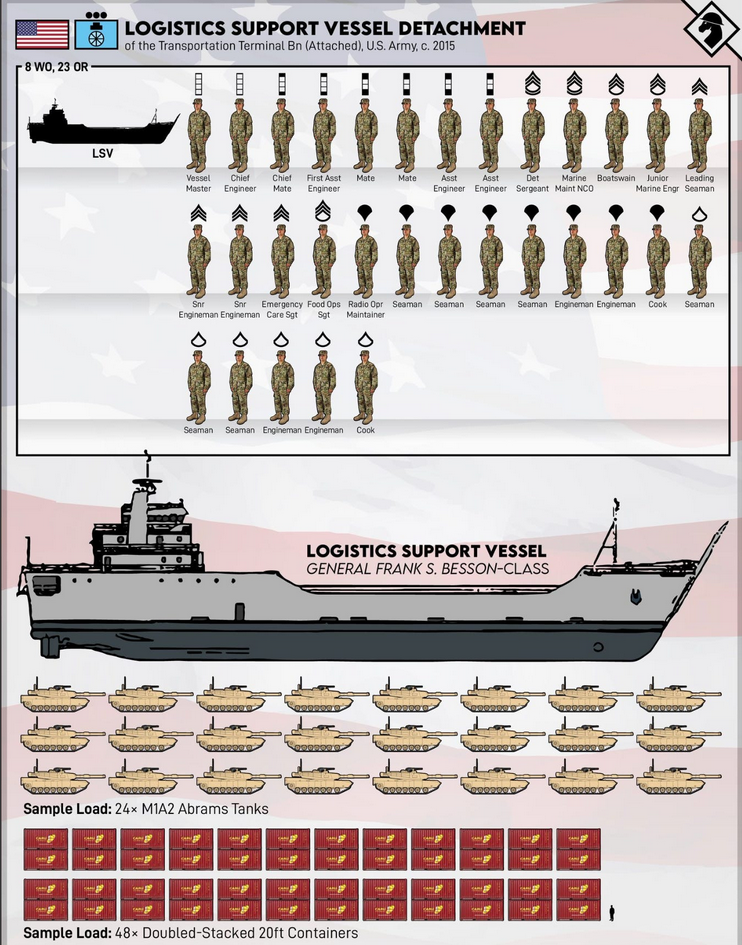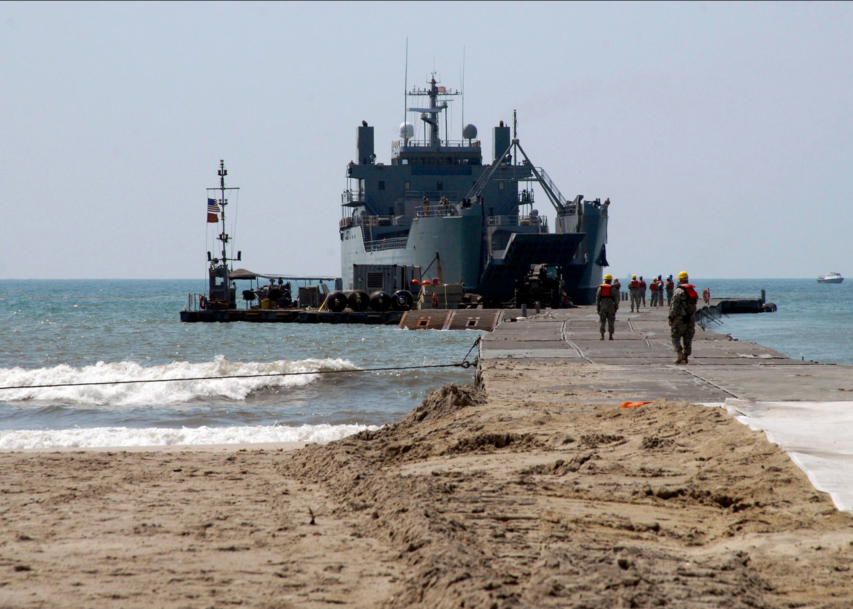The Biden administration has made a decision to create a temporary shore unloading facility to provide Gaza with “humanitarian aid”. The particular installation is called an Army Joint Logistics Over-the-Shore (JLOTS) and will be delivered by a US Army logistics ship, USAV General Frank S. Besson (LSV-1) which was reported as departing a base in Virginia and will arrive as soon as its 12-knot top speed will allow. CDR Salamander has the details:
… and yes my friends — the Army has its own navy. Let’s take a quick look at the Besson.
Yep’r, that 243 foot, 4,200 ton ship is commanded by … a Warrant Officer. Discuss amongst yourselves.
If you’re wondering what she looks like putting a JLOTS in place;
This will take about 1,000 personnel to accomplish. I don’t know a single maritime professional who thinks this is a good idea given the location and conditions ashore, but orders are orders. Make the best attempt you can.
An interesting note; this is not a Navy operation, but an Army operation. Remember what I told you about the fate of the East Coast Amphibious Construction Battalion TWO (ACB2) last summer? This story aligns well with the Anglosphere’s problem with seablindness we discussed on yesterday’s Midrats with James Smith.
As for my general thought on doing this? I’ll avoid the politics as much as I can, but I have concerns.
Generally speaking, no operation starts out on the right foot with a lie.
“We’re not planning for this to be an operation that would require U.S. boots on the ground,” said a senior administration official.
I’m not mad at the official. They are just making sure their statement is in line with higher direction and guidance. President Biden was clear in his SOTU speech;
The United States has been leading international efforts to get more humanitarian assistance into Gaza. Tonight, I’m directing the U.S. military to lead an emergency mission to establish a temporary pier in the Mediterranean on the coast of Gaza that can receive large shipments carrying food, water, medicine, and temporary shelters.
No U.S. boots will be on the ground.
You cannot build a pier, even JLOTS, without putting boots on the ground. Just look at the above picture again.








